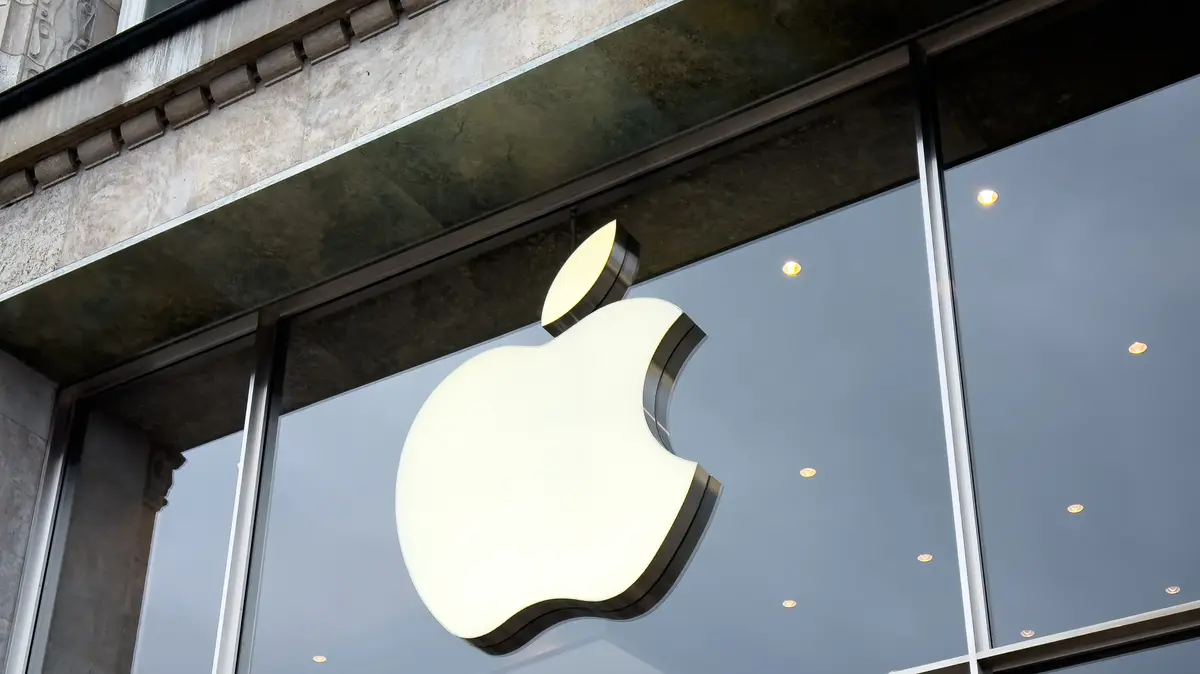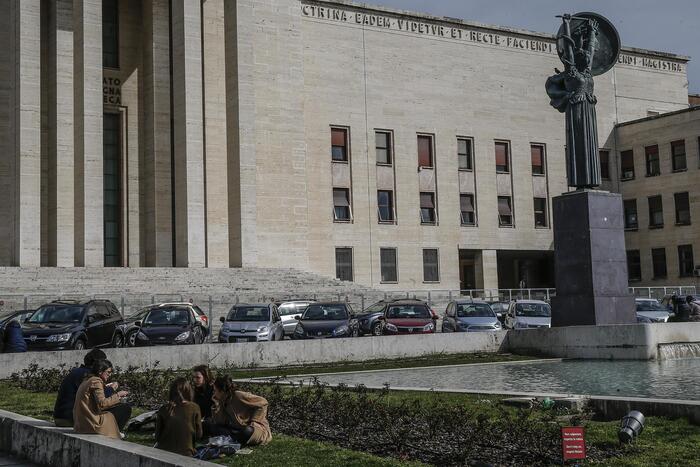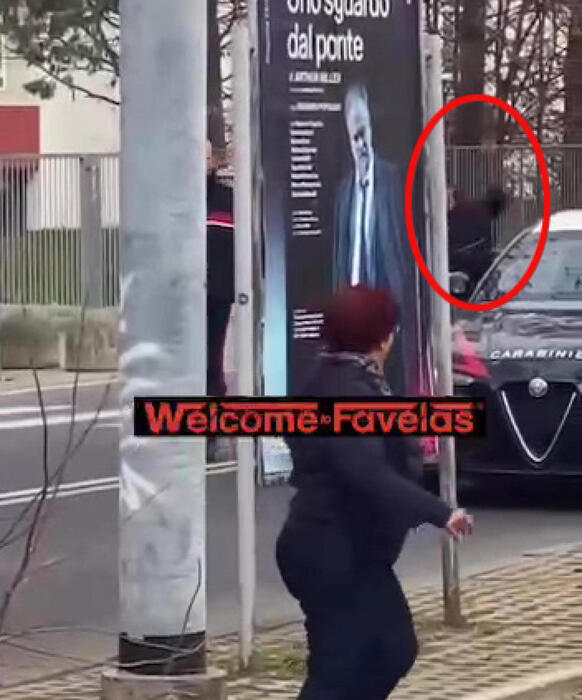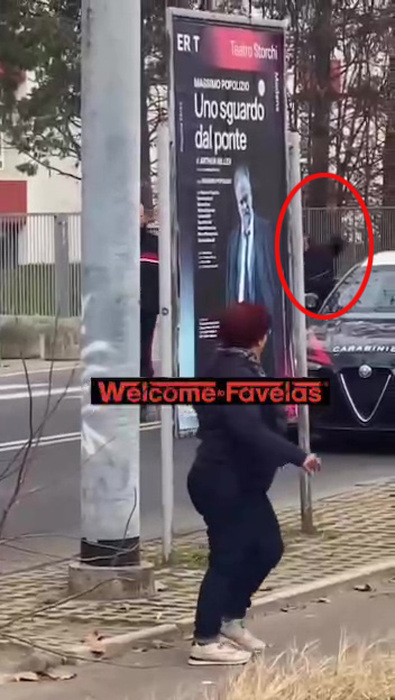Aline Fróes (1987) is a social entrepreneur in technology.
We found her in Morro dos Prazeres, the highest favela in Rio de Janeiro, where she has offices for the company she has led since 2015, Vai Na Web (VNW).
“We reinvest 100% of our profits.
We train people from the favelas and poor outskirts of Rio in advanced digital technology to develop
software
within the favelas.
We generate knowledge and value locally”, explains Aline.
Morro dos Prazeres has breathtaking views.
In the heat of the heat wave, the residents of the favela, always waving and smiling, went up carrying heavy furniture and construction materials, purchases, children in their arms, bicycles.
The fact of residing in a favela can mean an obstacle to get a job interview.
“Companies often hire professionals whose families can finance their studies.
In the rare cases of hiring, it is common to suffer discrimination or harassment”, says Froés.
Not without criticism, there is a boom in companies promoting improving the world through technology.
“It is common for companies, including technology companies, to consider areas of poverty and social exclusion as markets to exploit or marketing platforms to build sustainability narratives.
But the positive impacts and local value that they generate through the projects that they promote as 'sustainable' are not real, but rather extracted in the form of profits that are accumulated by a few partners who hold resources and power.
At least here, they don't even know the people they advertise to help."
There is extensive literature on the exploitation of areas of poverty that Froés mentions, such as
La fortuna en la base de la pyramid
(BoP) by economist and professor CK Prahalad.
This author advocates reducing profit margins per product to increase sales and maximize profits in these areas.
Under the criticism of much of the scientific community, the BoP gained identity as a strategy and became fashionable among entrepreneurs, start-ups and companies that want to say sustainable.
Along the same lines as Prahalad we find Marcelo Neri, former Minister of Strategic Affairs of Brazil (2013-2015) who published
A nova classe média: O lado brilhante da base da pirâmide
(
the new middle class: the bright side of the base of the pyramid
)
.
With those approaches, it is not surprising that 0.0003% of the world's population accumulates as much wealth as 60% of the population.
Fróes argues that, while inequality advances, technology companies concentrate wealth.
“Of the 10 most valuable companies in the world, eight are technology companies.
Technology is the tool that moves the world, but we have to redirect it in the right direction: to solve social needs.
We believe in empowering poor people, as collaborators or employees in strategic roles, to create solutions.
There is a lot of creative and innovative capacity in these people, who must be part of the solution”, he ditches.
There is a certain consensus in the scientific community that the projects promoted as "sustainable" by companies, in addition to not generating positive impacts (so fashionable), generate negative ones.
One of the reasons is that they impose values that replicate our competitive and unsustainable system.
They ignore the local: the collaborative capacities, the innovative knowledge and the resilient and persevering cultures.
Consequently, frustration and a decrease in self-esteem are generated among the beneficiaries, who often abandon the projects.
“Companies have to be more humble and less short-sighted.
They must stop designing projects far from reality, get closer to the communities and make long-term projects.
The common practice is to do projects for one year, which is a very short time to generate social impact.”
In
start-ups
and technology companies it is common to come across the idea: "technology will save us".
However, the people who know most about the challenges – for example, those living in poverty – are often not adequately involved in designing the solutions, as the report notes.
The frontiers of impact technology
,
of
Good Tech Lab. These entities generate profits by commercializing technology, they say they are sustainable, but their real contribution to solving the challenges of the Sustainable Development Goals (SDG) is questionable.
“At Vai Na Web (go to the web) we have a free technology school to meet the challenges of the digital economy with people who experience poverty (SDG1) and inequalities (SDG10) firsthand.
In addition, we carry out knowledge exchange.
In 2019 we received 60 students from the University of Ohio in the favela to teach them social impact through practice, on the ground”, says Fróes.
This is an
experiential learning practice.
) that can be effective in engaging today's students, who will be tomorrow's leaders.
In this way, they genuinely adopt social and environmental criteria, beyond narratives, in their decision-making processes that continue to shape our unsustainable systems, something that I have analyzed in research for the University of Oxford.
It is proven that society does not believe in the impacts that companies claim to have on sustainability.
However, if they relate properly to the communities – beginning by trying to understand the context, listening to them, recognizing the value of their knowledge and cultures – it is possible to generate more genuine impacts and contribute to a more authentic sustainability;
one based on social and environmental criteria, and promoting an economy at the service of people.
Thus, like VNW, companies will be able to differentiate themselves from the ordinary practices of current sustainability and build real trust with society, positioning themselves and in turn generating value for their businesses.
As Aline Fróes argues, we must abandon the perception of the “consumer market lacking in help” and know how to authentically relate to communities from humility, working with and for their people.
This is the third article in the series 'Relationship with communities and informal popular knowledge: central pillars to transform towards authentic sustainability'.
Leonardo Martins Dias
helps organizations to position themselves differently through projects that promote more authentic sustainability.
He teaches classes and researches on sustainability.
You can follow PLANETA FUTURO on
,
and
, and subscribe
to our 'newsletter'
here
.









